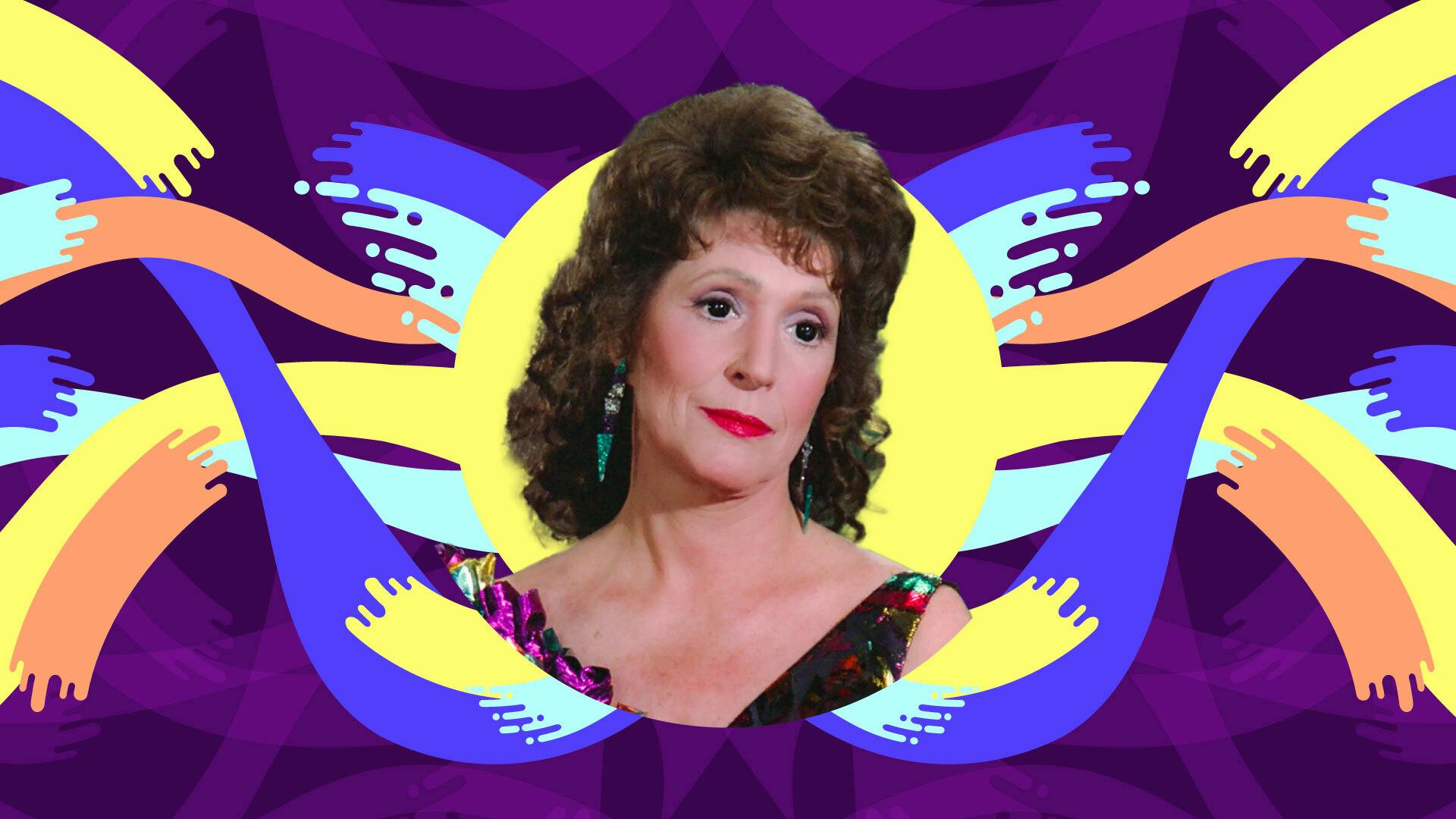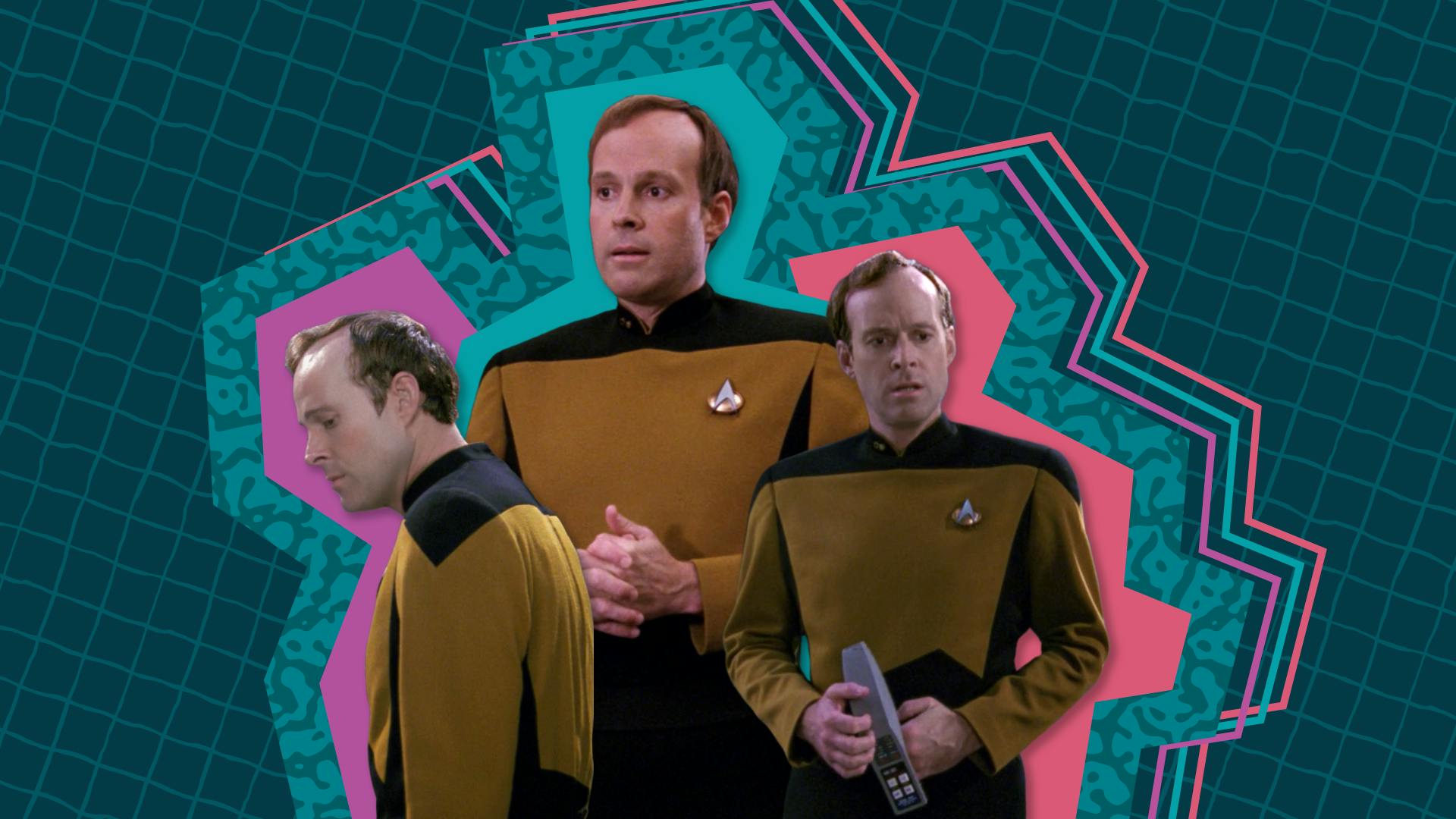Published Apr 13, 2023
How Lieutenant Commander Shelby Raised the Bar for Equality
She started with four simple words, 'You're in my way.'
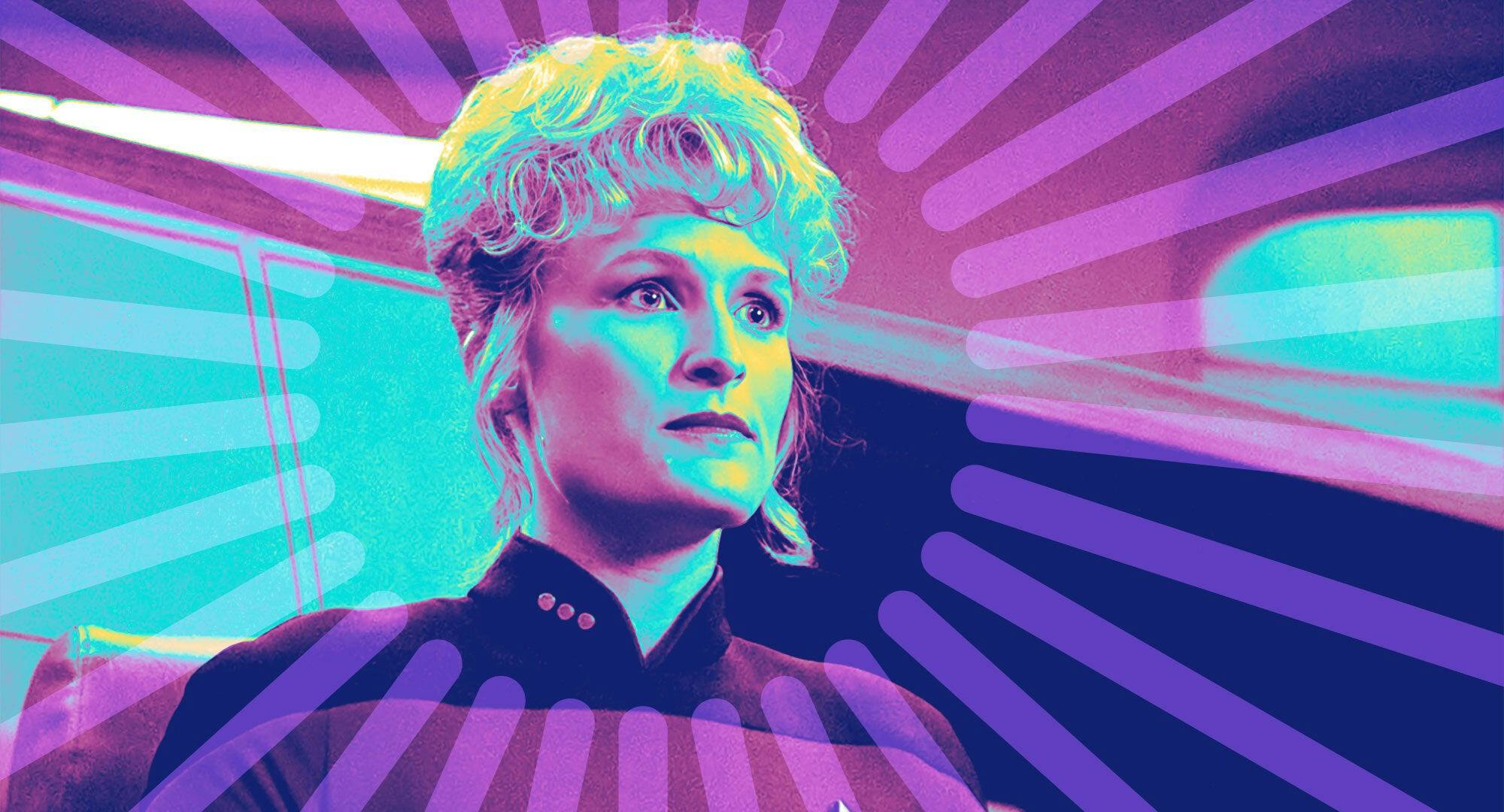
StarTrek.com
William T. Riker gave it his best shot in the Star Trek: The Next Generation episode, “The Best of Both Worlds, Part I.” He honestly did. He attempted to prevent the hard-charging, extremely capable Lieutenant Commander Shelby from outshining him with her expertise on the Borg.
Shelby made it crystal clear from the moment she appeared on-screen; she wanted Riker’s job as first officer. She felt that it was his time to move on rather than spending his days in Picard’s shadow. Only Riker, the poker shark, trombone-blowing, amiable, “Number One,” wasn’t quite ready to depart, leading to a not-so-subtle rivalry developing between the two officers.

"The Best of Both Worlds, Part I"
StarTrek.com
Things come to a head in a turbolift when Riker threatens Shelby, “I’ll snap you back so hard you’ll think you were a first-year cadet again.” Where others would have tucked tail and run at this point, Shelby boldly doubled down. Wearing an expression as ice cold as Rura Penthe, Shelby peers through Riker and declares, “You’re in my way.”
Damn.
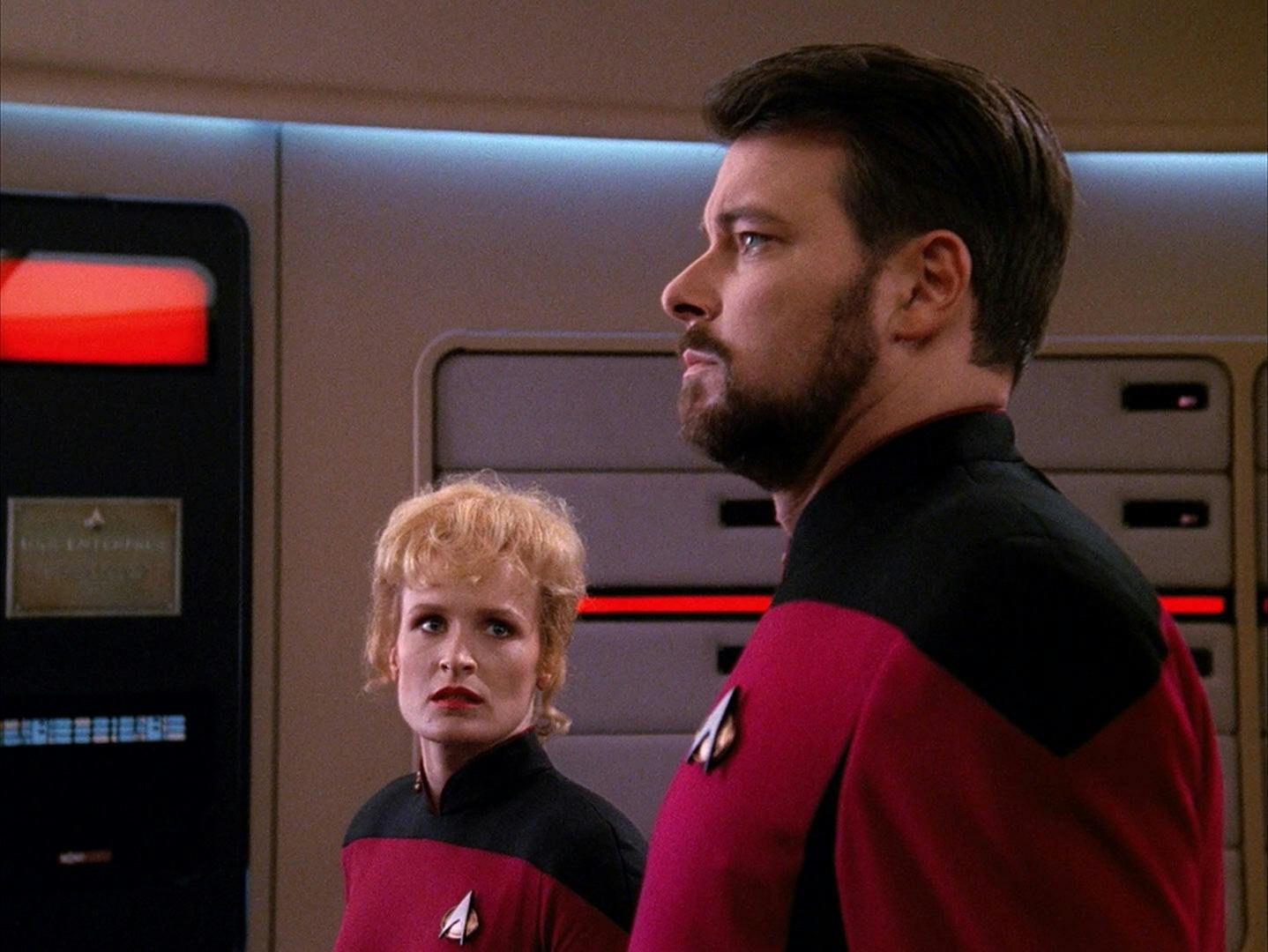
"The Best of Both Worlds, Part I"
StarTrek.com
I had never seen a female character like Commander Shelby (portrayed by Elizabeth Dennehy in a pitch-perfect performance) in the Star Trek universe before. Yes, we had Crusher, Troi, Pulaski, and Guinan on TNG. There was also the brief appearance of Captain Jarrett in the beloved episode “Yesterday’s Enterprise,” but when the Season 3 finale aired in the summer of 1990, Shelby was the ambitious woman boss we desperately needed at the dawn of the new decade. We still need her now.
Each April, Americans celebrate “Equal Pay Day,” the symbolic day when a woman’s earnings “catch up” to a man’s earnings from the previous year. According to the American Association of University Women (AAUW), women who work full-time typically take home about 80 cents for every dollar that a full-time male worker earns. The gender pay gap is closing at such a glacial pace, the AAUW estimates that the gap won’t fully close for another 133 years. That’s the year 2152, people.
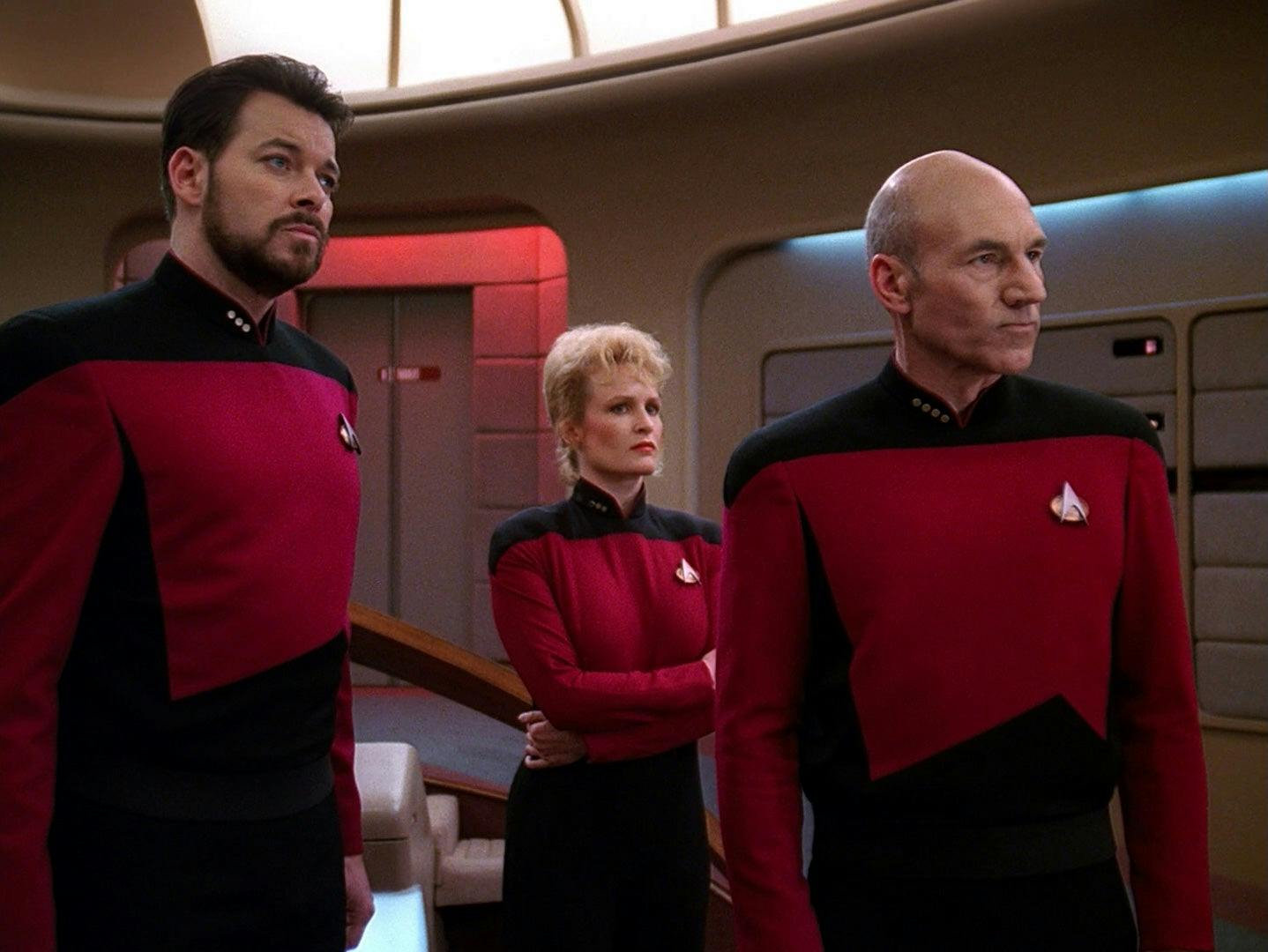
"The Best of Both Worlds, Part I"
StarTrek.com
By the time Commander Shelby enters the workforce in the 24th Century, women should have (hopefully) been earning equal pay for a while. Of course, people are no longer using money in the 24th Century, but we’ll take the wins where we can get them. Shelby, is the embodiment of what a woman can be when not saddled with a pay gap. She’s not forced into the role of ‘the nice girl’ who does all the hard work in the office, yet is repeatedly told to wait for her turn at career advancement. She doesn’t need to fear making her professional goals widely known, lest she be seen as “overly aggressively” by her male peers. She needn’t overthink the perfect moment to interject in a meeting without seeming bossy. Unburdened and unbothered by any of that, Shelby simply goes out and gets whatever the hell she wants. And what she wants just so happens to be Riker’s job.
In her two episodes, Shelby didn’t always go by the book. If she saw the need to go down to the planet’s surface before the rest of the Away Team reported for duty, she went. If she wanted to push back against Riker’s “safe” decisions, she spoke up. She was spring-loaded to act first, then discuss later. Whereas Troi, Crusher, and Guinan served as nurturers for the crew's minds and bodies, Commander Shelby didn’t have these inclinations. In an early '90s TV landscape when even career-woman Murphy Brown had a baby, it felt revelatory for a show like Star Trek to acknowledge two simple truths — Not all women have the nurturing gene, and not all women want to hear your feelings. Some women are all-business, and that needs to be normalized the same way it is for male characters. When Picard is captured by the Borg, it’s Shelby that leads the Away Team to recover the Captain — essentially going where no woman had gone before. At that point in Star Trek’s history, you’d have to go back to the unaired The Original Series pilot, “The Cage,” with Majel Barrett as “Number One,” to see a woman in a comparable position of authority.
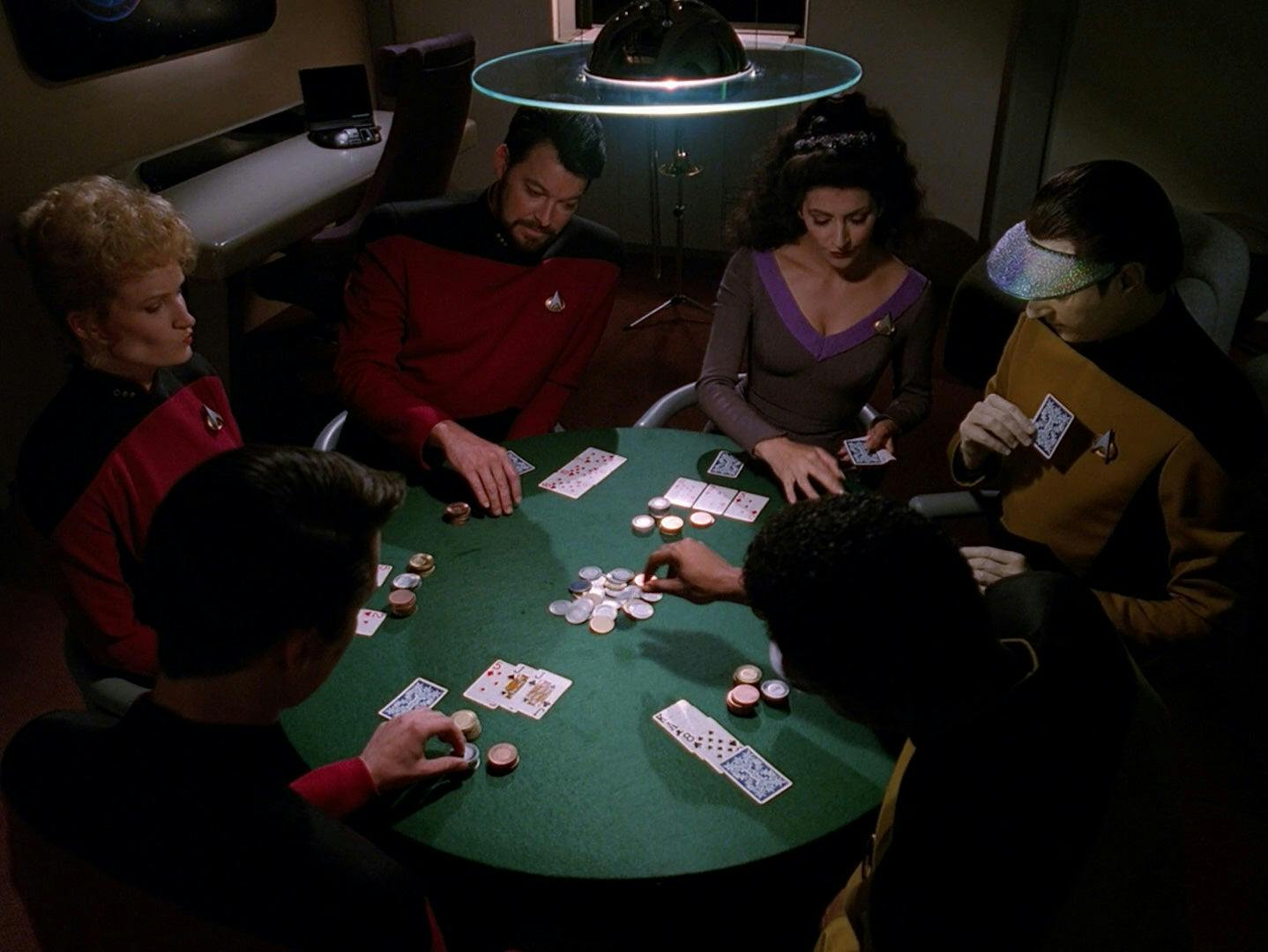
"The Best of Both Worlds, Part I"
StarTrek.com
Credit is due to the writing staff of TNG for making Shelby such a credible foil for Riker. She even managed to one-up him in the crew poker game. The conflict between Shelby and Riker never focused on her gender, but instead centered on their contrasting leadership styles.
“If you can’t make the big decisions, Commander, I suggest you make room for someone who can.” When Shelby unleashed this phrase on Riker, I saw a woman making room for herself. A woman saying, “I am a person of great consequence.” It’s a mindset that I personally carried with me in my Air Force career and beyond. Shelby pushed the boundaries of what we were used to seeing women do on television. She gave us a stimulating take on women leadership, one that was forthright and fearless. Many women, myself included, could identify with her goal-oriented personality that tended to rub others — especially men — the wrong way.
For the remainder of TNG’s run, I kept waiting to see if Shelby would make another appearance. She never did, but I like to imagine that Shelby is still out there somewhere in the galaxy, untethered from earthly burdens like pay gaps and gender norms. Instead, she’s flourished — probably a battle-hardened Admiral with an entire fleet at her disposal, hunting down every last Borg cube and leaving a trail of stardust in her wake.


